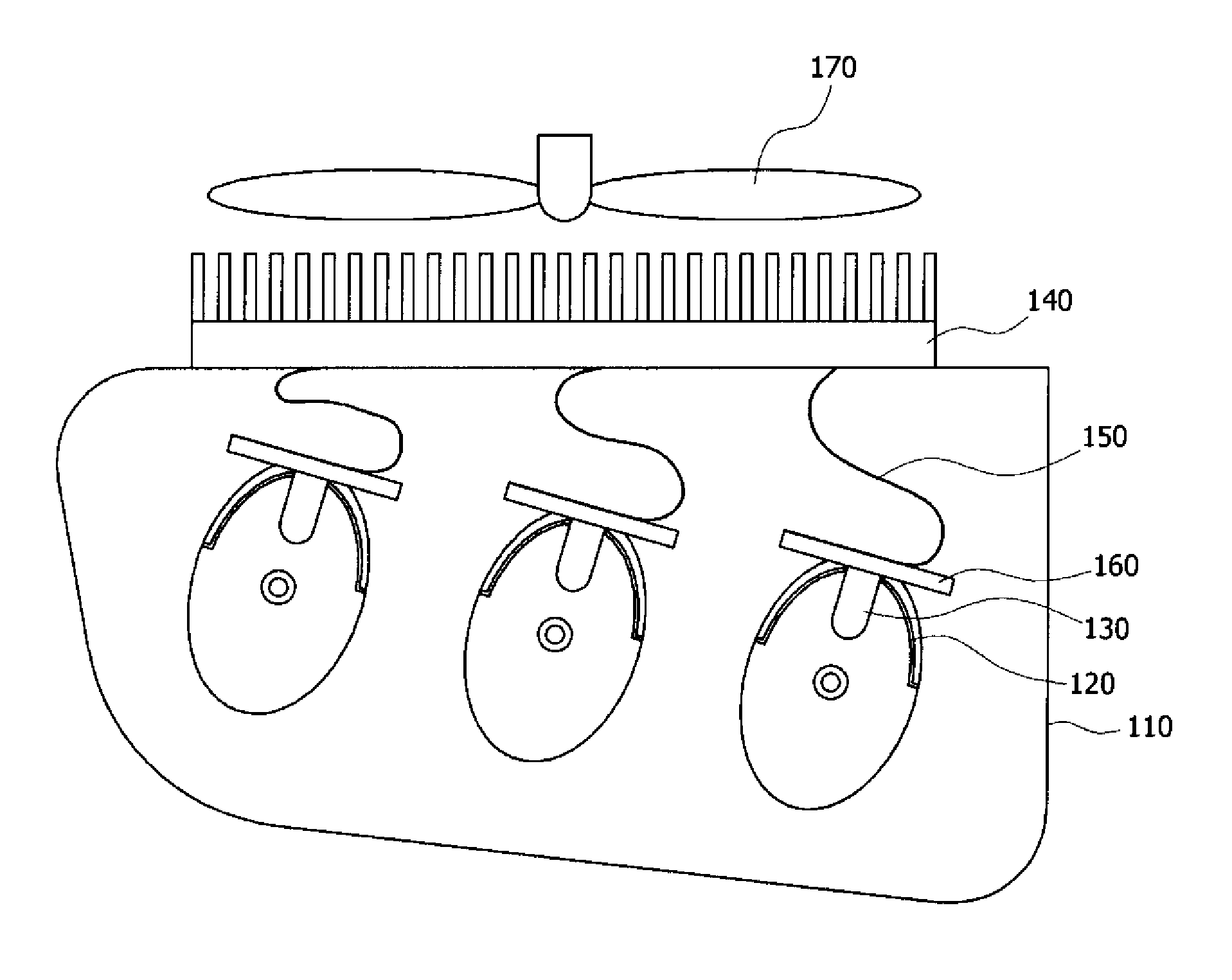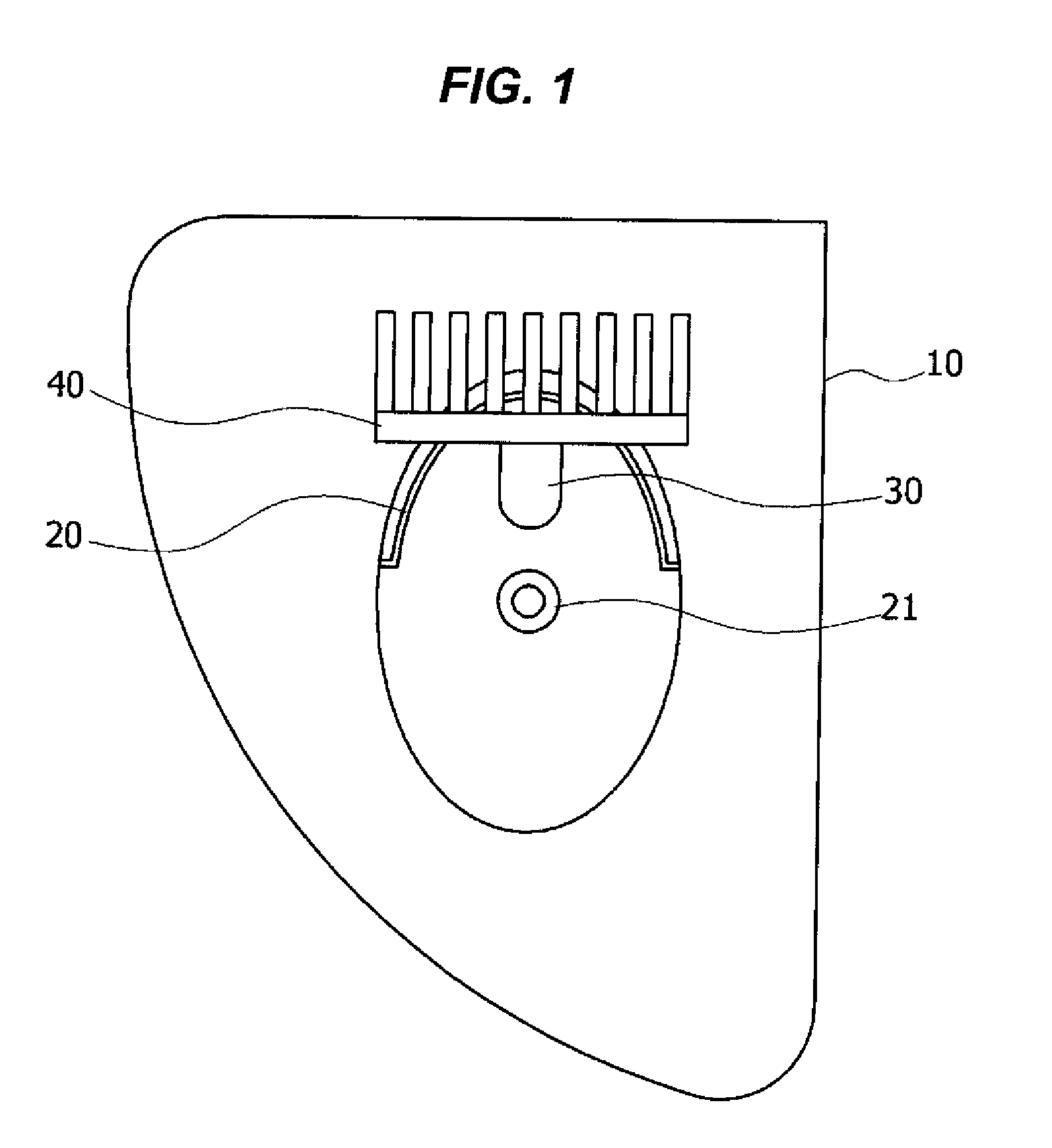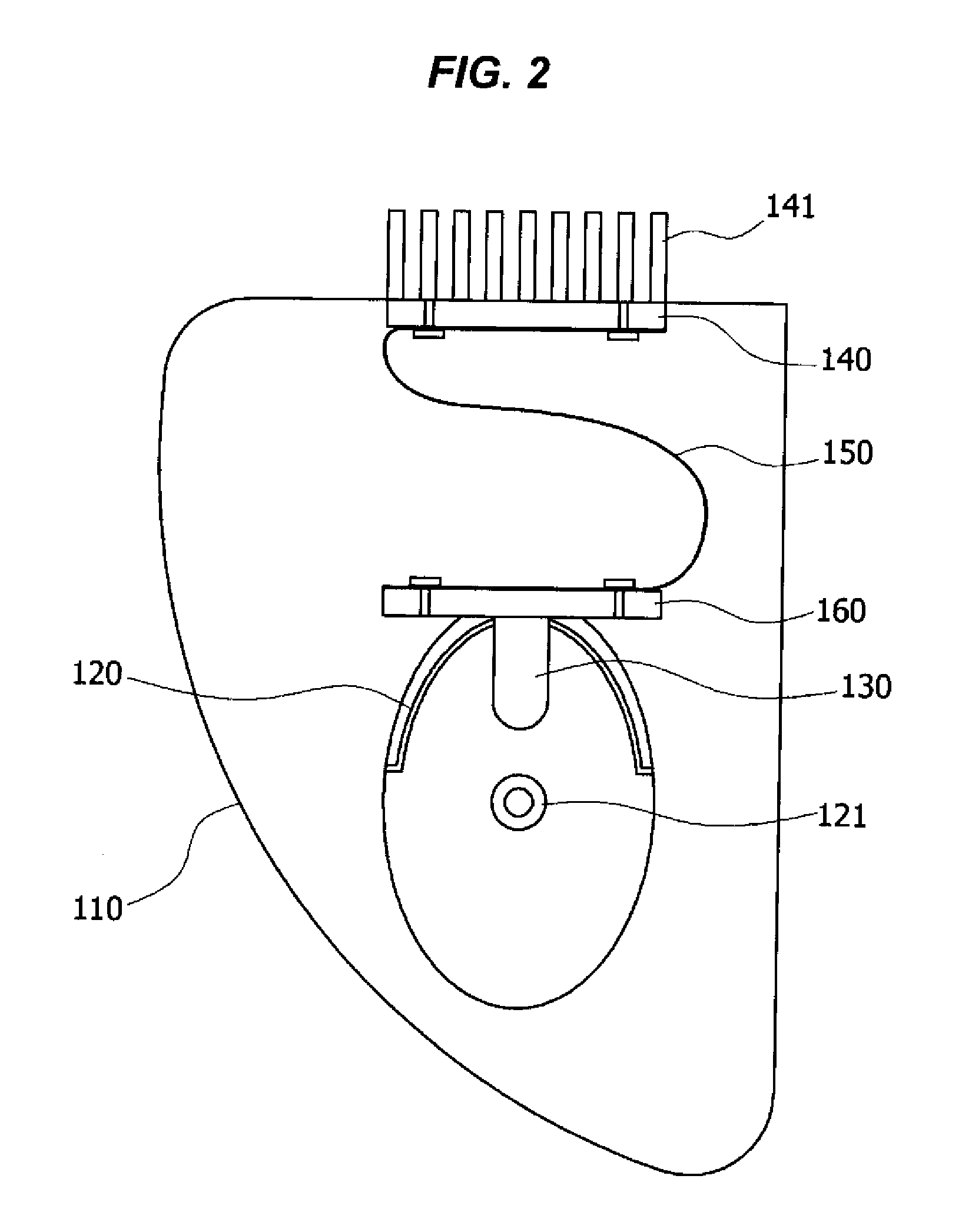Adaptive front light system having high heat-dissipation efficiency
a technology of adaptive headlights and heat dissipation efficiency, which is applied in the direction of gas-filled discharge tubes, lighting and heating equipment, transportation and packaging, etc., can solve the problems of reducing the lifespan, glare of oncoming vehicles, and reducing the safety of drivers, so as to improve the heat dissipation efficiency of light sources and increase the durability of headlights.
- Summary
- Abstract
- Description
- Claims
- Application Information
AI Technical Summary
Benefits of technology
Problems solved by technology
Method used
Image
Examples
Embodiment Construction
[0032]Reference will now be made in detail to various embodiments of the present invention(s), examples of which are illustrated in the accompanying drawings and described below. While the invention(s) will be described in conjunction with exemplary embodiments, it will be understood that present description is not intended to limit the invention(s) to those exemplary embodiments. On the contrary, the invention(s) is / are intended to cover not only the exemplary embodiments, but also various alternatives, modifications, equivalents and other embodiments, which may be included within the spirit and scope of the invention as defined by the appended claims.
[0033]FIG. 2 is a schematic view illustrating the heat sink structure of an adaptive front light system (AFLS) according to an exemplary embodiment of the present invention; FIG. 3 is a perspective view illustrating the structure of a heat conduction member according to the present invention; FIG. 4 is a schematic view illustrating th...
PUM
 Login to View More
Login to View More Abstract
Description
Claims
Application Information
 Login to View More
Login to View More - R&D
- Intellectual Property
- Life Sciences
- Materials
- Tech Scout
- Unparalleled Data Quality
- Higher Quality Content
- 60% Fewer Hallucinations
Browse by: Latest US Patents, China's latest patents, Technical Efficacy Thesaurus, Application Domain, Technology Topic, Popular Technical Reports.
© 2025 PatSnap. All rights reserved.Legal|Privacy policy|Modern Slavery Act Transparency Statement|Sitemap|About US| Contact US: help@patsnap.com



